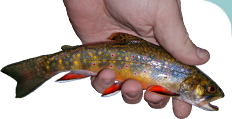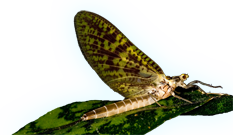Blog & Latest Updates
Fly Fishing Articles
Insects by Common Name


Mayfly Species Neocloeon triangulifer
Taxonomic Navigation -?-
Kingdom
Animalia (Animals)
» Phylum
Arthropoda (Arthropods)
» Class
Insecta (Insects)
» Order
Ephemeroptera (Mayflies)
» Family
Baetidae (Blue-Winged Olives)
» Genus
Neocloeon
» Species triangulifer
Where & When
This species may produce more than one brood per year.
Nymph Biology
Environmental Tolerance: Moderate to highly tolerant of pollution
Your Thoughts On Neocloeon triangulifer:
Top 10 Fly Hatches
Top Gift Shop Designs
Eat mayflies.
Top Insect Specimens
Miscellaneous Sites
Troutnut.com is copyright © 2004-2024 Jason
Neuswanger (email Jason). See my FAQ for information about use of my images.
 privacy policy
privacy policy
